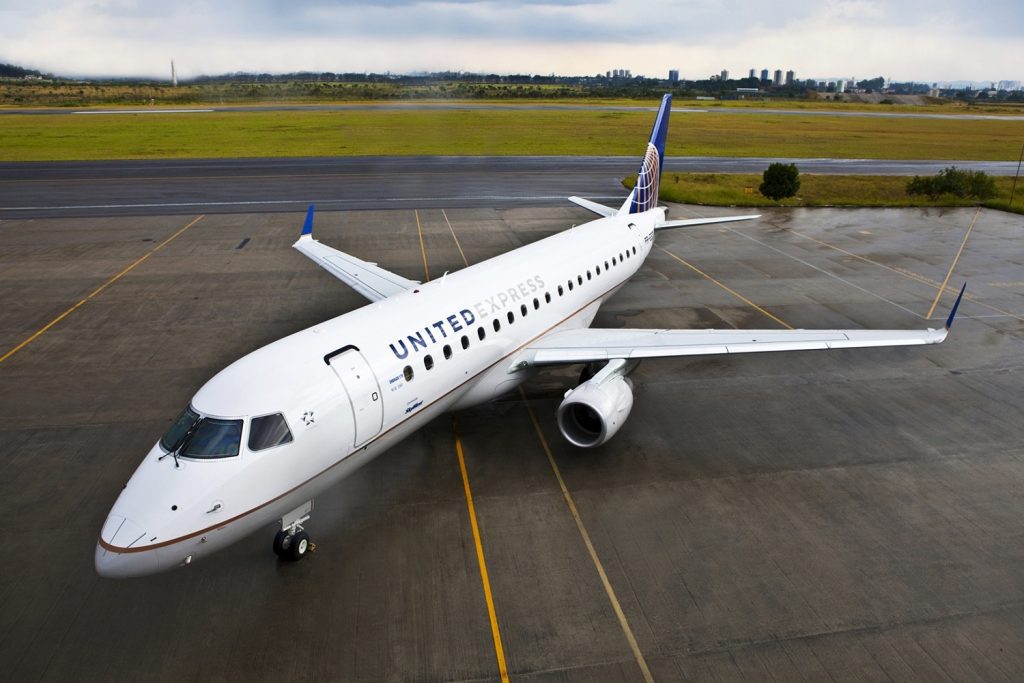United Airlines Plays Up Its Denver Advantage as Global Routes Suffer

Skift Take
For United Airlines, China is weak, Hong Kong is "terrible," Argentina is "pretty bad," the rest of the world is "between OK and good," and Denver is emerging as the airline's "highest-margin hub," the carrier's president told investment analysts Thursday afternoon.
The pockets of international weakness are an annoyance, but should not materially influence earnings, as other regions, including Mexico, Brazil, and the Caribbean have improved, United's Scott Kirby said. United recently said it will suspend Chicago-Hong Kong and Newark-Buenos Aires.
Speaking at the Morgan Stanley 7th Annual Laguna Conference in Dana Point, California, Kirby poked a bit at his predecessors, saying a few years ago that "United would have been missing its numbers and would have been blaming it on China and Hong Kong."
But he said the new United, which has bulked up its domestic presence since Kirby joined in August 2016, has enough profitable assets to make up the difference. United has promised investors it will hit $11 to $13 in earnings per share by 2020, and Kirby reiterated the airline will make that, no matter what. "It's no excuses," he said.
Denver Advantage
Chief among those assets may be Denver, where United's has been adding flights. As recently as two years ago, United operated about 360 flights at its Rocky Mountain hub, but on some days this summer, it flew more than 500.
By adding scale at a centrally located airport with no operational obstacles, United has boosted profitability. Not long ago, the airline struggled to compete against Frontier Airlines and Southwest Airlines, both of which operate large operations and competed with United for customers.
But as United has grown — it is more than twice the size of Southwest, which tops out at about 225 daily departures — competition from the two low-cost carriers is less of a threat.
The increased scale also has made more long-haul routes viable. When United had fewer domestic flights in Denver to feed widebody jets, it struggled to fill airplanes headed to Europe and Asia. The airline tried London in 2008, but gave up on it in 2011.
But London returned recently, along with a new route to Frankfurt. They joined an existing flight to Tokyo, which the airline started in 2013.
The Frankfurt route began in May and was "one of the five most profitable international routes" over the summer, Kirby said, even though it can take years for a new route to mature. Meanwhile, London, which resumed last year on a seasonal basis, is now year-round.
"This is what happens with a hub," Kirby said. "You add flying to a hub and it makes everything else stronger."
United may grow more in Denver, Kirby said, though the airline has not yet decided how much. He suggested it could be between about 500 daily flights and 720. Delta operates the largest U.S. airline hub in Atlanta, with more than 1,000 departures.
"As long as we grow margins in the hubs, there is still going to be opportunity," Kirby said.
Growing Denver, along with other mid-continent hubs in Chicago and Houston, was the key part of Kirby's plan to improve United's domestic network and regain "natural share" the airline had lost under former CEO Jeff Smisek, who preferred a strategy of modest growth. Many investment analysts wrote they disliked Kirby's idea, fearing it would start a fare skirmish and diminish returns for all airlines.
But that hasn't happened. On Thursday reminded analysts he was right about how it would play out. "People screamed at me all day for the growth plan," Kirby said. "They don't understand how it exactly works."
737 Max
United has pulled Boeing 737 Max 9 jets from its schedules until December 19. United, like most airlines, has extended the cancellation period several times, but Kirby said there's some indication the wait for the Max is almost over.
Ostensibly that's good news, though Kirby acknowledged the Max grounding is boosting unit revenues at all airlines. With less capacity than expected, prices naturally go up.
Next year, as Max flights return, airlines should lose some pricing power. Kirby said he agrees with the conventional wisdom but said, "I expect pricing will be firmer than people think it is going to be next year."
Kirby declined to share names, but said some U.S. airlines are struggling, allowing stronger carriers to take advantage. All major publicly traded U.S. carriers are profitable, but JetBlue Airways and Spirit Airlines have spooked markets recently with updated guidance. American Airlines has also struggled operationally, alienating some key customers.
"I suspect some of them will continue to underperform next year," Kirby said of the unnamed competitors.
Expedia Negotiations
United's contract with Expedia Group expires at month's end, and if nothing changes, the airline's fares soon will disappear from its sites, including Expedia, Travelocity and Orbitz.
United's executives have said little about their feud with the company, or why they want to drop the contract. But Kirby and others have said United will be fine without the deal. Expedia executives have said their company will be OK without United.
"We've got 18 days to go, and we are talking to them now," Kirby said, adding, "It is not on my top 10 list of things to worry about."




